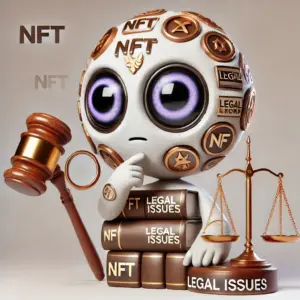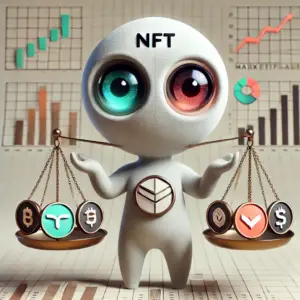The NFT (Non-Fungible Token) space has exploded in recent years, attracting a surge of interest from individuals and businesses alike. While the potential for profit and ownership of unique digital assets is enticing, it’s crucial to be aware of the risks that accompany this emerging market. Scammers are increasingly targeting NFT enthusiasts, employing various tactics to steal valuable assets and personal information. To navigate this uncharted territory safely, understanding and implementing effective safeguards is essential.
Understanding the Common NFT Scams
Before delving into preventive measures, let’s examine the prevalent types of NFT scams that you should be wary of:
- Fake NFT Marketplaces: Scammers create imitations of legitimate NFT marketplaces, often with URLs that closely resemble the originals. These websites entice users to connect their cryptocurrency wallets, luring them into believing they are conducting transactions on a secure platform. Once connected, the scammers steal the wallet’s funds and disappear.
- Phishing Attacks: Phishing emails and websites are employed to trick unsuspecting users into revealing their sensitive information, such as cryptocurrency wallet addresses and private keys. These scams often mimic legitimate NFT companies or platforms, urging users to verify their accounts or participate in fraudulent giveaways.
- Malicious Links and Pop-ups: Scammers embed malicious links and pop-ups within NFT-related websites, social media posts, or emails. When unsuspecting users click on these links, they are redirected to fake websites or prompted to install malware that compromises their devices and access to their cryptocurrency wallets.
- Overhyped or “Pump and Dump” Schemes: Fraudsters create hype around certain NFT projects, often employing social media influencers and online communities to artificially inflate their value. Once the price reaches a peak, they sell their holdings, leaving unsuspecting investors holding worthless assets.
Protecting Yourself from NFT Scams: A Practical Guide
To safeguard your digital assets and personal information, follow these essential preventive measures:
- Choose Reputable NFT Marketplaces: Conduct thorough research on NFT marketplaces before using them. Verify their legitimacy, reputation, and security measures. Popular and well-established platforms like OpenSea, Rarible, and SuperRare are generally considered safe.
- Verify Links Carefully: Never click on links from unverified sources or those that seem suspicious. Instead, manually type in the URL of the NFT marketplace or platform you intend to visit.
- Protect Your Cryptocurrency Wallet: Create strong and unique passwords for your cryptocurrency wallets. Enable two-factor authentication (2FA) and consider using hardware wallets for enhanced security.
- Beware of Phishing Attempts: Never enter your cryptocurrency wallet information or private keys on websites or pop-ups that seem suspicious or unsolicited. Legitimate NFT platforms will not request these sensitive details.
- Exercise Discernment with Hype and Giveaways: Approach overly enthusiastic claims about NFT projects with caution. Do your own research and verify the credibility of the project and its team before investing.
- Diversify Your Investments: Don’t put all your eggs in one basket. Spread your investments across different NFT projects to mitigate risks and potential losses.
Additional Tips for Enhanced Security
To further enhance your protection against NFT scams, consider these additional measures:
- Keep Your Software Updated: Regularly update your operating system, web browser, and cryptocurrency wallet software to ensure you have the latest security patches and features.
- Be Vigilant on Social Media: Be cautious about interactions on social media platforms related to NFTs. Only engage with reputable accounts and communities, and avoid sharing sensitive information.
- Support Educational Initiatives: Encourage education and awareness about NFT scams within the NFT community. Share information about preventive measures and support initiatives that promote responsible NFT practices.
- Report Suspicious Activity: If you encounter suspicious activity or believe you have been scammed, report it to the appropriate authorities and the NFT platform involved. Sharing information about scams helps protect others.
Conclusion
The NFT space offers exciting opportunities, but it’s crucial to navigate it with caution. By staying informed, exercising vigilance, and implementing preventive measures, you can minimize your risk of falling victim to scams and protect your valuable digital assets. Remember, knowledge is power, and staying ahead of the curve is essential in safeguarding your crypto wealth and enjoying the benefits of the ever-evolving NFT landscape.






